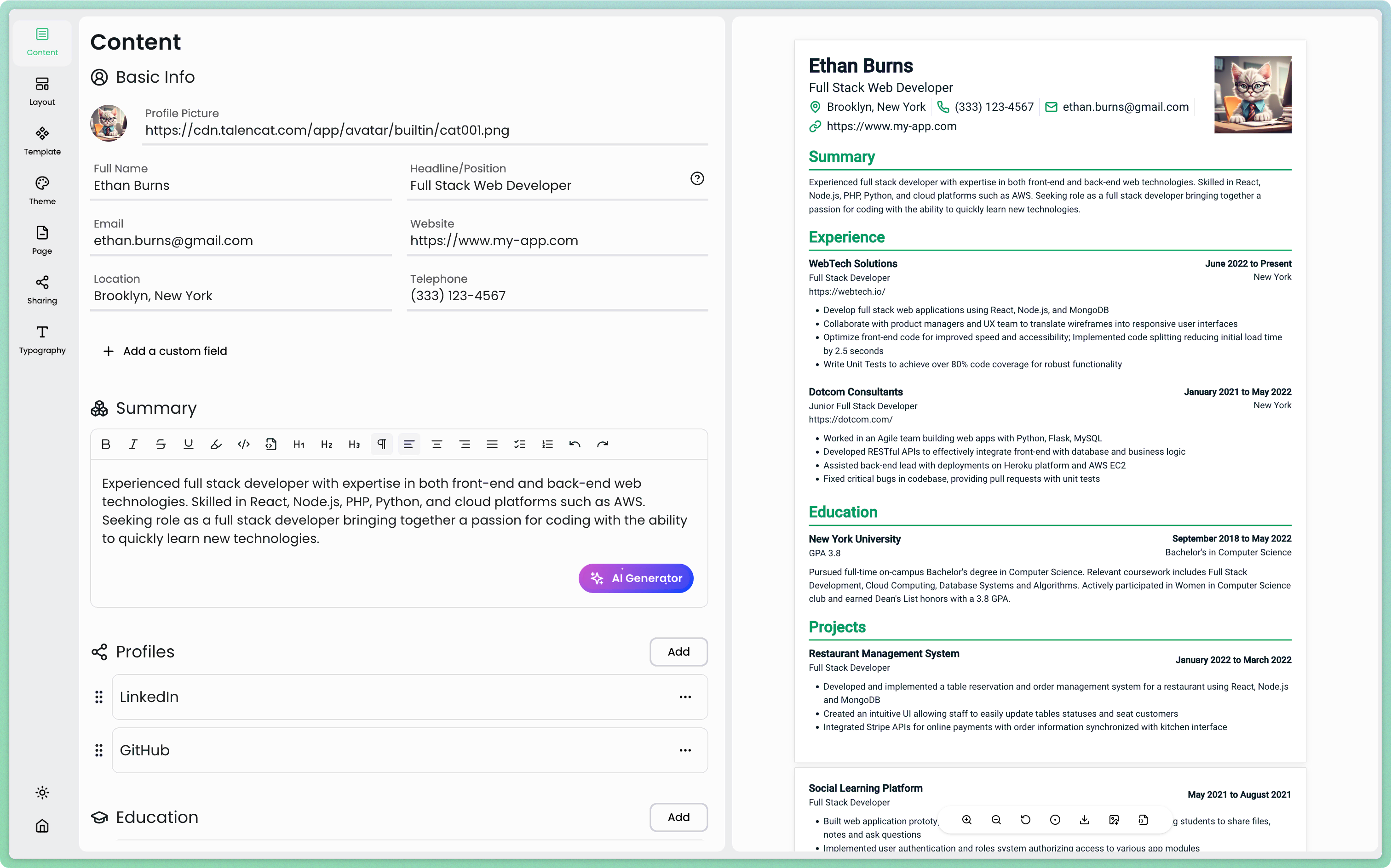Preparing for a medical office manager interview can be a daunting task, but with the right approach and knowledge, you can confidently showcase your skills and experience to potential employers. This comprehensive guide will walk you through the essential aspects of medical office manager interview questions, providing you with valuable insights and strategies to help you succeed in your next interview.
Introduction
Importance of Preparing for Medical Office Manager Interviews
Medical office manager positions are highly sought after in the healthcare industry, and for good reason. These roles require a unique blend of administrative expertise, leadership skills, and medical knowledge. As such, the interview process for these positions can be rigorous and competitive. Proper preparation is crucial to stand out from other candidates and demonstrate your suitability for the role.
Overview of Common Interview Questions
Medical office manager interviews typically cover a wide range of topics, including your experience in healthcare administration, your leadership style, your ability to handle complex situations, and your knowledge of medical office operations. By familiarizing yourself with common interview questions and preparing thoughtful responses, you can increase your chances of making a positive impression on potential employers.
Types of Interview Questions
When preparing for a medical office manager interview, it's essential to understand the different types of questions you may encounter. This knowledge will help you tailor your responses and showcase your skills effectively.
General Interview Questions
Questions about Experience
General questions about your experience are designed to give the interviewer an overview of your background and qualifications. These may include:
Sample Question: "Can you tell me about your experience in healthcare administration?"
Expert Answer: "I have over eight years of experience in healthcare administration, including five years as an assistant office manager at a busy family practice. During this time, I've developed strong skills in staff management, patient relations, and medical billing procedures. I've also implemented several process improvements that increased office efficiency by 25% and improved patient satisfaction scores."
Questions about Skills and Qualifications
Interviewers will want to know about the specific skills and qualifications that make you a strong candidate for the medical office manager position.
Sample Question: "What certifications or specialized training do you have that are relevant to this role?"
Expert Answer: "I hold a Bachelor's degree in Healthcare Administration and am certified in Medical Office Management by the Professional Association of Health Care Office Management. I've also completed courses in HIPAA compliance and electronic health records management, which I believe are crucial for maintaining efficient and compliant medical office operations."
Behavioral Interview Questions
Behavioral questions are designed to assess how you've handled specific situations in the past, which can indicate how you might perform in the future.
Situational Questions
Sample Question: "Describe a time when you had to deal with a difficult patient or staff member. How did you handle the situation?"
Expert Answer: "In my previous role, we had a patient who was consistently rude to our front desk staff. I arranged a private meeting with the patient to understand their concerns. It turned out they were frustrated with long wait times. I explained our scheduling process and implemented a new system to reduce wait times. This not only resolved the issue with this patient but also improved overall patient satisfaction."
STAR Method Questions
The STAR method (Situation, Task, Action, Result) is a structured way to answer behavioral questions.
Sample Question: "Tell me about a time when you implemented a new process or system in your office. What was the outcome?"
Expert Answer: "In my last position, I noticed our appointment scheduling system was inefficient, leading to long wait times and patient complaints. I researched and proposed a new digital scheduling system. After getting approval, I led the implementation, including staff training. As a result, we reduced scheduling errors by 40% and decreased patient wait times by an average of 15 minutes."
Technical Questions
Technical questions assess your knowledge of medical office operations and your ability to handle specific tasks related to the role.
Questions Related to Medical Office Operations
Sample Question: "How do you ensure HIPAA compliance in a medical office setting?"
Expert Answer: "Ensuring HIPAA compliance is crucial in any medical setting. I implement regular staff training on HIPAA regulations, use secure electronic health record systems, and enforce strict policies on patient information handling. I also conduct periodic audits to identify and address any potential compliance issues promptly."
Questions about Medical Records Management
Sample Question: "What experience do you have with electronic health record (EHR) systems?"
Expert Answer: "I have extensive experience with EHR systems, including implementation and staff training. In my previous role, I oversaw the transition from paper records to an EHR system, which improved our record-keeping accuracy and efficiency. I'm proficient in several popular EHR platforms and stay updated on the latest developments in this area."
Key Skills and Qualities to Highlight
When preparing for a medical office manager interview, it's crucial to identify and emphasize the key skills and qualities that make you an ideal candidate for the position. These attributes are essential for success in the role and will demonstrate your value to potential employers.
Administrative Skills
Strong administrative skills are the foundation of effective medical office management. During your interview, be prepared to discuss your experience with:
- Scheduling and appointment management
- Medical billing and coding
- Insurance claim processing
- Office budget management
- Inventory control and supply management
Highlight specific examples of how you've used these skills to improve office efficiency or resolve complex administrative challenges.
Communication Skills
As a medical office manager, you'll be the central point of communication between patients, staff, and healthcare providers. Emphasize your ability to:
- Communicate clearly and effectively with diverse groups
- Handle sensitive or confidential information with discretion
- Mediate conflicts and resolve disputes
- Provide excellent customer service to patients and their families
Share instances where your communication skills have led to positive outcomes in your previous roles.
Leadership and Management Skills
Medical office managers are responsible for overseeing staff and ensuring smooth daily operations. Showcase your leadership abilities by discussing:
- Your experience in hiring, training, and supervising staff
- Strategies for motivating and developing team members
- Your approach to performance management and evaluation
- How you've successfully led teams through change or challenging situations
Provide concrete examples of how your leadership has positively impacted team performance and office productivity.
Problem-Solving Abilities
The ability to identify and resolve issues quickly and effectively is crucial in a medical office setting. Be prepared to discuss:
- Your analytical and critical thinking skills
- Examples of complex problems you've solved in previous roles
- Your approach to decision-making under pressure
- How you balance multiple priorities and deadlines
Demonstrate your problem-solving abilities by sharing specific situations where you've successfully navigated challenges in a medical office environment.

Medical Office Manager Interview: Top 15 Common Interview Questions
1. Can you describe your experience in managing a medical office?
Expert Answer:
"I have over 10 years of experience managing medical offices, including overseeing daily operations, managing staff, and ensuring compliance with healthcare regulations. In my previous role at XYZ Clinic, I successfully implemented a new EHR system that improved patient flow and reduced wait times by 25%. I also led a team of 15 staff members, ensuring they were trained and motivated to deliver high-quality patient care."
2. How do you handle stressful situations in a medical office?
Expert Answer:
"Stressful situations are inevitable in a medical office, especially during peak times or when dealing with emergencies. I handle stress by maintaining a calm demeanor and focusing on problem-solving. I prioritize tasks, delegate responsibilities when necessary, and communicate clearly with my team to ensure everyone is on the same page. Additionally, I make sure to take a few moments to breathe and assess the situation before taking action."
3. What strategies do you use to ensure patient satisfaction?
Expert Answer:
"Patient satisfaction is a top priority for me. I implement strategies such as regular patient feedback surveys, ensuring timely appointment scheduling, and training staff on excellent customer service. I also focus on creating a welcoming environment and addressing any patient concerns promptly. In my previous role, we saw a 20% increase in patient satisfaction scores after implementing these strategies."
4. How do you manage staff and resolve conflicts among team members?
Expert Answer:
"Effective communication is key to managing staff and resolving conflicts. I hold regular team meetings to ensure everyone is aligned with the office’s goals and to address any issues that arise. When conflicts occur, I listen to all parties involved, encourage open dialogue, and work to find a mutually agreeable solution. I also provide training on conflict resolution and team-building to foster a positive work environment."
5. How do you stay updated on healthcare regulations and compliance requirements?
Expert Answer:
"Staying updated on healthcare regulations is crucial for maintaining compliance. I regularly attend industry conferences, webinars, and training sessions. I also subscribe to relevant newsletters and journals, and I am a member of professional organizations that provide updates on regulatory changes. Additionally, I ensure that my team is trained on the latest compliance requirements and that we conduct regular audits to verify adherence."
6. Can you describe a time when you had to implement a new system or process in a medical office?
Expert Answer:
"In my previous role, we transitioned from a paper-based system to an electronic health record (EHR) system. I led the implementation process, which included selecting the right EHR vendor, training staff, and ensuring a smooth transition. I also created a detailed timeline and communicated the changes to all stakeholders. The new system resulted in improved efficiency, reduced errors, and better patient outcomes."
7. How do you handle patient complaints and grievances?
Expert Answer:
"Patient complaints are an opportunity to improve our services. When a complaint is received, I first listen carefully to the patient’s concerns and acknowledge their feelings. I then investigate the issue thoroughly, involving the relevant staff members if necessary. Once the root cause is identified, I work with the team to develop a solution and ensure the patient is satisfied with the outcome. I also document the complaint and any actions taken for future reference."
8. What experience do you have with budgeting and financial management in a medical office?
Expert Answer:
"I have extensive experience in budgeting and financial management. In my previous role, I was responsible for creating and managing the annual budget, monitoring revenue and expenses, and ensuring the office remained financially stable. I also worked closely with the billing department to improve collections and reduce accounts receivable. My efforts resulted in a 15% increase in revenue over two years."
9. How do you ensure the security and confidentiality of patient information?
Expert Answer:
"Ensuring the security and confidentiality of patient information is a top priority. I implement strict policies and procedures for handling patient data, including access controls, encryption, and regular security audits. I also ensure that all staff members are trained on HIPAA regulations and the importance of confidentiality. Additionally, I stay informed about the latest security threats and implement measures to protect against them."
10. How do you prioritize tasks and manage your time effectively?
Expert Answer:
"Effective time management is crucial in a fast-paced medical office. I use a combination of tools and techniques to prioritize tasks, such as creating daily to-do lists, setting deadlines, and using project management software. I also delegate tasks when appropriate and focus on the most critical tasks first. By staying organized and maintaining clear communication with my team, I ensure that all tasks are completed efficiently and on time."
11. How do you handle staffing shortages or unexpected absences?
Expert Answer:
"Staffing shortages can be challenging, but I handle them by being proactive and having contingency plans in place. I maintain a list of temporary staff and cross-train team members so they can cover for each other when needed. I also encourage open communication so that staff can notify me of any absences as early as possible. During unexpected absences, I prioritize tasks and adjust the schedule to ensure patient care is not compromised."
12. What experience do you have with medical billing and coding?
Expert Answer:
"I have a strong understanding of medical billing and coding, having managed the billing department in my previous role. I am familiar with ICD-10 coding, CPT codes, and the claims submission process. I also worked closely with the billing team to ensure accurate coding and timely submission of claims, which resulted in a reduction of denied claims by 20%."
13. How do you ensure that your office is running efficiently?
Expert Answer:
"Efficiency is key to a well-run medical office. I achieve this by regularly reviewing and optimizing workflows, implementing technology solutions where appropriate, and ensuring that staff are properly trained and motivated. I also conduct regular performance reviews and gather feedback from staff and patients to identify areas for improvement. By continuously monitoring and adjusting processes, I ensure that the office runs smoothly and efficiently."
14. How do you handle a situation where a patient is unhappy with their care?
Expert Answer:
"When a patient is unhappy with their care, my first step is to listen to their concerns without interrupting. I then apologize for any inconvenience and assure them that we take their feedback seriously. I investigate the issue, involving the relevant staff members if necessary, and work to find a solution that addresses the patient’s concerns. I also follow up with the patient to ensure they are satisfied with the outcome and take steps to prevent similar issues in the future."
15. Why do you want to work as a Medical Office Manager, and what do you hope to achieve in this role?
Expert Answer:
"I am passionate about healthcare and have always been drawn to roles that allow me to make a positive impact on patient care. As a Medical Office Manager, I have the opportunity to ensure that the office runs smoothly, patients receive the best care possible, and staff are supported and motivated. I hope to achieve a well-organized, efficient office where patients feel valued and staff are proud to work. I also aim to implement innovative solutions that improve patient outcomes and enhance the overall experience."
Additional Questions to Consider
Questions on Team Collaboration
Sample Question: "How do you foster a collaborative environment among different departments in a medical office?"
Expert Answer: "I believe in breaking down silos between departments to create a more efficient and harmonious workplace. I organize regular cross-departmental meetings to discuss shared goals and challenges. I also implement collaborative projects that require input from multiple departments, encouraging staff to work together and understand each other's roles better. Additionally, I create opportunities for informal interactions, such as team-building activities or shared lunch spaces, to build relationships across departments."
Questions on Patient Interaction
Sample Question: "How do you ensure that all staff members provide excellent customer service to patients?"
Expert Answer: "Excellent customer service is a cornerstone of a successful medical practice. I start by setting clear expectations for patient interactions and incorporating customer service metrics into performance evaluations. I provide regular training on communication skills, empathy, and handling difficult situations. I also implement a patient feedback system and share both positive feedback and areas for improvement with the team. Leading by example, I make a point of interacting positively with patients and demonstrating the level of service I expect from my staff."
Questions on Handling Challenges
Sample Question: "Describe a time when you had to implement a significant change in office procedures. How did you manage the transition?"
Expert Answer: "In my previous role, we needed to transition to a new electronic health record system. I knew this would be a significant change that could potentially disrupt our operations. To manage this, I first formed a transition team with representatives from each department. We developed a comprehensive implementation plan with clear timelines and responsibilities. I communicated regularly with all staff about the reasons for the change and the benefits it would bring. We provided extensive training, including hands-on practice sessions, and had a support team available during the initial rollout. By involving staff in the process and providing ample support, we were able to complete the transition smoothly with minimal disruption to patient care."
TalenCat: Ace Your Medical Office Manager Interview Questions
Preparing for a medical office manager interview can be challenging, but with TalenCat CV Maker, you can streamline your preparation process and gain valuable insights into potential interview questions. This AI-powered online resume builder offers a unique "Interview Assistant" feature that analyzes your resume and generates tailored interview questions. Here's how to use it effectively:
Step 1: Log in to TalenCat CV Maker and create or upload your medical office manager resume.
Step 2: Navigate to the AI Assistant section and select "Interview Assistant" from the left-side menu.

Step 3: Click "Analyze Now" to generate potential interview questions based on your resume content.

Step 4: Review the generated questions and prepare your responses. These questions will be tailored to your experience in medical office management, healthcare administration, and relevant skills mentioned in your resume.
Step 5: Use the TalenCat CV Maker's intuitive interface to refine your resume if needed, ensuring it highlights your key qualifications for the medical office manager role.

By leveraging the AI interview tool within TalenCat CV Maker, you'll be well-prepared to tackle questions about your experience in healthcare administration, staff management, medical billing, and patient care coordination. This preparation will give you a significant edge in your medical office manager interview.
Remember, the key to a successful interview lies in thorough preparation. With TalenCat CV Maker's Interview Assistant, you can anticipate questions and craft compelling responses that showcase your expertise in medical office management.
Tips for Answering Interview Questions
Structuring Your Responses
When answering interview questions, it's important to provide clear, concise, and relevant responses. Use the STAR method (Situation, Task, Action, Result) for behavioral questions to ensure you're giving a complete answer that demonstrates your skills and experience.
Demonstrating Relevant Experience
Whenever possible, relate your answers to specific experiences in medical office management. Use concrete examples that showcase your skills and how you've successfully handled similar situations in the past.
Showcasing Soft Skills
While technical skills are important, don't forget to highlight your soft skills such as communication, leadership, and problem-solving. These are often just as crucial in a medical office manager role.
Common Mistakes to Avoid
Lack of Preparation
One of the biggest mistakes candidates make is not adequately preparing for the interview. Research the healthcare facility, understand the specific requirements of the role, and practice your responses to common questions.
Inadequate Knowledge of the Role
Make sure you have a thorough understanding of what a medical office manager does and the specific challenges they face. Be prepared to discuss how your skills and experience align with these responsibilities.
Poor Communication Skills
As a medical office manager, strong communication skills are essential. During the interview, demonstrate these skills by listening carefully, speaking clearly, and maintaining good eye contact.
Conclusion
Final Thoughts on Acing the Interview
Preparing for a medical office manager interview requires a combination of industry knowledge, self-reflection, and practice. By familiarizing yourself with common interview questions, highlighting your relevant skills and experiences, and avoiding common pitfalls, you can significantly increase your chances of success.
Encouragement for Candidates
Remember, an interview is not just an opportunity for the employer to evaluate you, but also for you to assess if the position and organization are a good fit for your career goals. Approach the interview with confidence, be authentic, and let your passion for healthcare administration shine through. With thorough preparation and a positive attitude, you'll be well-equipped to ace your medical office manager interview and take the next step in your career.




